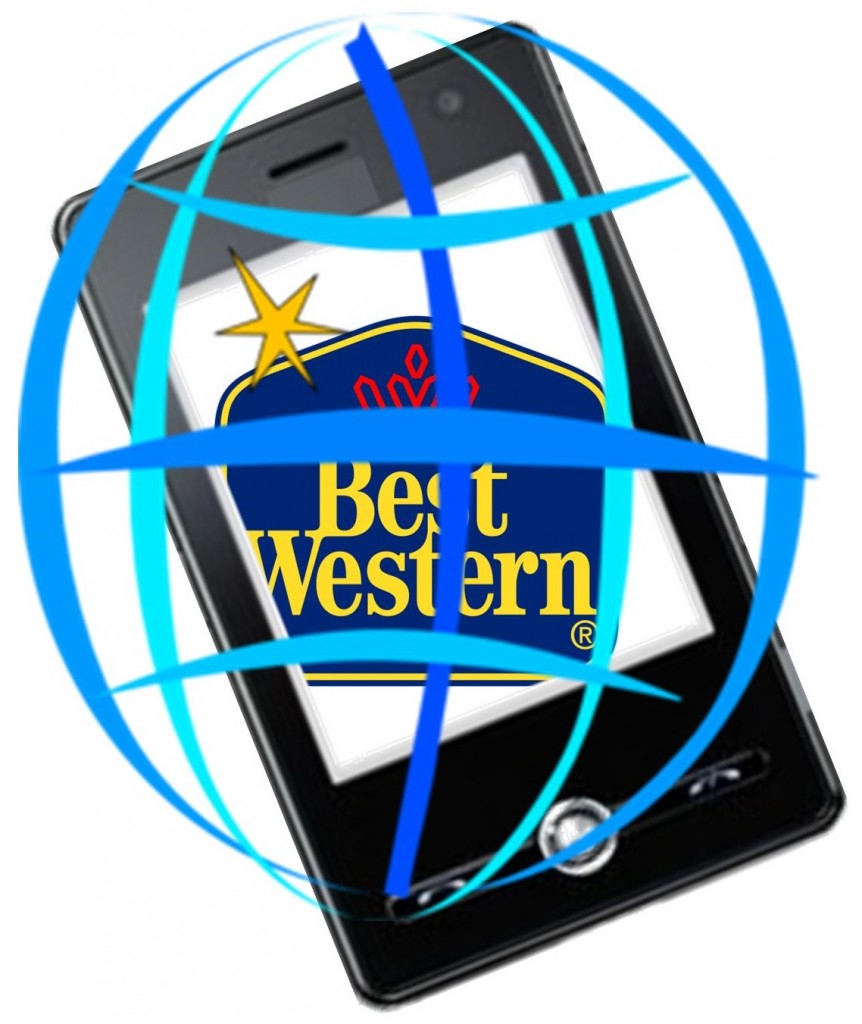The hotel chain has found that advertising with this technique has provided them with results.
The Best Western chain of hotels has decided to move toward geolocation based mobile marketing in order to help to boost the interest of travelers and encourage them to book a stay at one of their locations as they drive past competing accommodations or pass through airports.
The initial wave of the campaign is beginning in Washington state but is expected to expand.
The Best Western geolocation campaign is being run through the assistance of the PayPal Media Network. It is designed to encourage consumers to use their mobile devices in order to book their hotel stays.
This use of geolocation technology could help to boost the relevancy of the marketing.
 The PayPal Media Network director of marketing and sales technology, Sarah Hodkinson, said that “According to Best Western, the booking window for reservations is no longer weeks in advance.” Instead, she explained, they are waiting until they are moments away from a location to make their reservation. She went on to say that by leveraging geolocation technology based mobile marketing, “hoteliers can capture these last-minute bookings by engaging travelers in proximity to their locations.”
The PayPal Media Network director of marketing and sales technology, Sarah Hodkinson, said that “According to Best Western, the booking window for reservations is no longer weeks in advance.” Instead, she explained, they are waiting until they are moments away from a location to make their reservation. She went on to say that by leveraging geolocation technology based mobile marketing, “hoteliers can capture these last-minute bookings by engaging travelers in proximity to their locations.”
In order to accomplish this, geolocation technology was applied by Best Western to geo-fence their ads around airports and hotels throughout Washington state. Furthermore, the chain is also running the location based advertisements within the geo-fences that have been set up near the locations of rival hotels in order to try to convince them to choose one of their own hotels, instead.
The brand believes that the geolocation based ads help to provide consumers with information regarding the number of miles that they would have to travel to the nearest Best Western location. Moreover, the ads also include a “book now” button that redirects them to a smartphone optimized Best Western room booking page where they can learn more about the accommodations or actually book the room in which they would like to stay. This could help to make sure that the ads are always being presented to travelers at the moment that they are seeking the hotel in which they will be spending their trip.
Recent research is indicating that this channel is an important route to generating trends and conversions.
As smartphone penetration continues its rapid rise, it has been predicted by recent research that social media marketing over these devices will play a growing role in the success of mobile commerce.
The popularity of smartphones is bringing an increase in the growth of the use of online content from those sources.
For example, a recent report from Brafton indicated that smartphone users and tablet users have increased their visits to websites by 52 percent this year, when compared to the same time last year. Moreover, the design of a brand’s site can elicit various reactions from visitors. Done properly, and optimized for a smaller screen and touchscreen functions, brands can elicit excitement and a drive to learn more and take action – such as make a purchase – leading to a potential rise in conversions.
Social media marketing helps to drive consumers to those landing pages so that they can be converted.
 Another report, this time from Vision Critical, determined that social media marketing can also help mobile commerce by easing the transition to the channel from having only been on the standard web. Even when the smartphone optimized or responsive website has not yet been created, brands can use Facebook, Twitter, Google+, Pinterest, Instagram, and even YouTube to help to make sure that they are making themselves present, available, and relevant to smartphone consumers, even before an official website or app (or both) remain in the pipeline.
Another report, this time from Vision Critical, determined that social media marketing can also help mobile commerce by easing the transition to the channel from having only been on the standard web. Even when the smartphone optimized or responsive website has not yet been created, brands can use Facebook, Twitter, Google+, Pinterest, Instagram, and even YouTube to help to make sure that they are making themselves present, available, and relevant to smartphone consumers, even before an official website or app (or both) remain in the pipeline.
In the Vision Critical survey, 35 percent of mobile Twitter users said that they completed all of their social media marketing inspired purchases right from their smartphones. Moreover, an additional 46 percent said that they did most or some of those purchases from their devices. Only 19 percent said that they transferred over to their desktops or laptops to complete the transaction.
This suggests that social media marketing can directly lead to conversions over mobile commerce. It was supported further as the trend was not isolated to Twitter. Among Facebook users, 17 percent said that they always used their device for that reason, while 40 percent said that they did for part of them. Among Pinterest users, the figures were 19 percent and 43 percent, respectively.
 The PayPal Media Network director of marketing and sales technology, Sarah Hodkinson, said that “According to Best Western, the booking window for reservations is no longer weeks in advance.” Instead, she explained, they are waiting until they are moments away from a location to make their reservation. She went on to say that by leveraging geolocation technology based mobile marketing, “hoteliers can capture these last-minute bookings by engaging travelers in proximity to their locations.”
The PayPal Media Network director of marketing and sales technology, Sarah Hodkinson, said that “According to Best Western, the booking window for reservations is no longer weeks in advance.” Instead, she explained, they are waiting until they are moments away from a location to make their reservation. She went on to say that by leveraging geolocation technology based mobile marketing, “hoteliers can capture these last-minute bookings by engaging travelers in proximity to their locations.”
 Another report, this time from Vision Critical, determined that social media marketing can also help mobile commerce by easing the transition to the channel from having only been on the standard web. Even when the smartphone optimized or responsive website has not yet been created, brands can use Facebook, Twitter, Google+, Pinterest, Instagram, and even YouTube to help to make sure that they are making themselves present, available, and relevant to smartphone consumers, even before an official website or app (or both) remain in the pipeline.
Another report, this time from Vision Critical, determined that social media marketing can also help mobile commerce by easing the transition to the channel from having only been on the standard web. Even when the smartphone optimized or responsive website has not yet been created, brands can use Facebook, Twitter, Google+, Pinterest, Instagram, and even YouTube to help to make sure that they are making themselves present, available, and relevant to smartphone consumers, even before an official website or app (or both) remain in the pipeline.